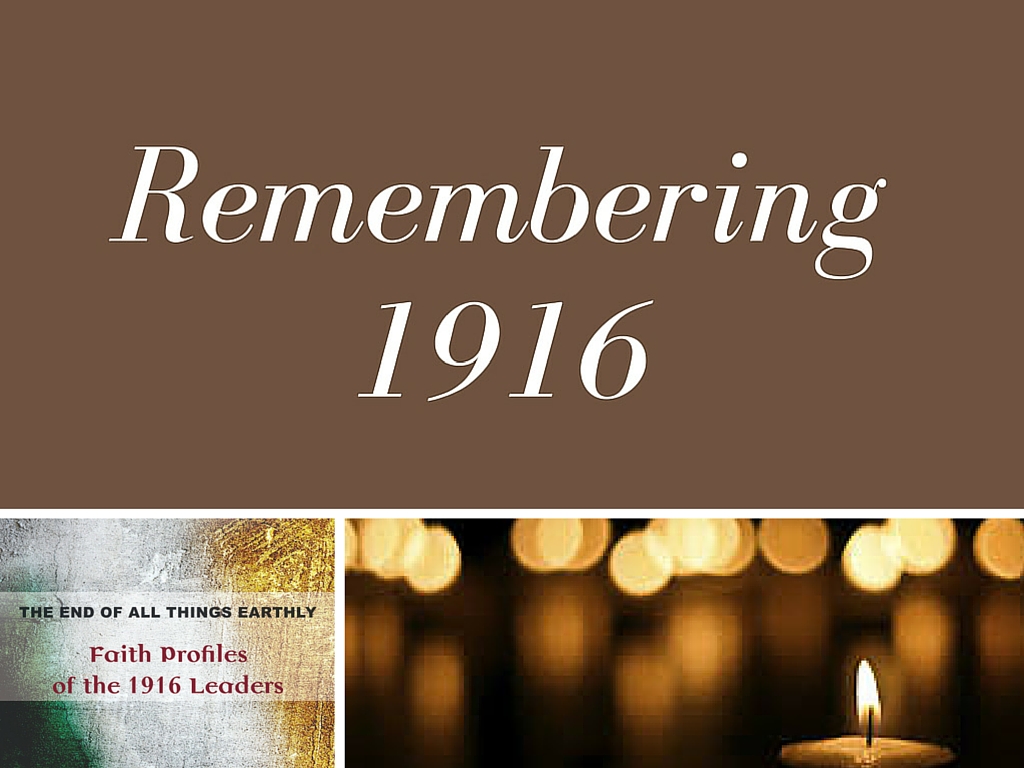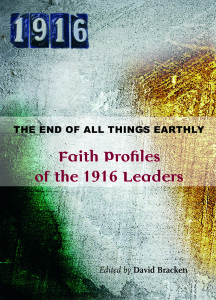Bishops’ Statements
9 March 2016: Statement of the Spring 2016 General Meeting of the Irish Catholic Bishops’ Conference on the Centenary of the Easter Rising of 1916
The centenary of the Easter Rising marks the watershed moment of our political history. This pivotal anniversary provides an opportunity for us to deepen our understanding of who we are as a people and to affirm our hope for lasting peace and justice. We will be able to reflect on where we are as a society and on what we want to achieve for the future. People of faith will shape their understanding of this transformative event in the context of Christian values such as love of neighbour, respect for life, reconciliation, hope and healing.
On 3 April at 11:00am Archbishop Diarmuid Martin will participate in an inter-faith prayer service in Glasnevin Cemetery, Dublin, commemorating all those who died in the events of Easter week 1916. This service will focus on the Easter Rising (24 to 29 April 1916), and the executions that followed in May and August of that year. The prayer service will take place alongside marble plinths bearing the names of those who died, including children, rebels, civilians, soldiers and policemen. An Taoiseach will attend and leaders of several Christian Churches and the Jewish and Muslim faiths from all parts of the island, will participate. There will be particular inputs from young people from each faith tradition. Music from the ceremony will be from the Army Band and the event will be broadcast live on RTÉ One television.
Archbishop Eamon Martin will be principal celebrant and Archbishop Diarmuid Martin will preside and preach the homily at the Annual 1916 Mass of Remembrance in the Church of the Sacred Heart – the church of the Defence Forces – in Arbour Hill, Dublin on Sunday 24 April, exactly one hundred years since the day of the Rising in 1916. President Michael D Higgins will attend the Mass as will members of the government and the judiciary as well as relatives of those executed following the Rising. The Mass will be broadcast live by RTÉ from 10.00am. Following the Mass an inter-faith prayer service will take place in Arbour Hill Cemetery. The adjacent military cemetery is the resting place for fourteen of the executed leaders of the Rising including Pádraig Pearse, James Connolly and Major John McBride.
Bishops commended a new publication from Veritas which profiles the faith of the 1916 leaders. The End of All Things Earthly is a series of essays, edited by David Bracken, diocesan archivist in the Diocese of Limerick, which gives a valuable insight into the personal stories of faith which accompanied the 1916 leaders.
14 March 2016: Who really is Pope Francis? The relevance of his message to Ireland as we celebrate and commemorate 1916
The evaluation of the success of those dreams of 1916 is not something that can be left to the pundits and the columnists. The evaluation of the success of the dreams of 1916 takes place within the lives and hopes of each of us. We can judge the success or failure of the dreams of 1916 by the kind of dreams that each of us has for Ireland today and for tomorrow’s Ireland. – Archbishop Diarmuid Martin
16 March 2016: Message for Saint Patrick’s Day 2016 from Archbishop Eamon Martin
In this 1916 centenary year, as we reflect on all that we have become and achieved as a people and a nation, we have much to thank God for. Although a small number of people attempt to drag Ireland back to unrest and violence, people from across our communities are strongly committed to building bridges towards lasting peace. Ireland remains the land of a thousand welcomes: visitors to our shores remark on our friendliness, generosity and kindness. We are renowned the world over for our music, dance, literature and for the breathtaking beauty of our landscapes and coasts. Our Christian roots run deep, and Irish homes and families are largely characterised by the Christian virtues of faith, hope and charity. – Archbishop Eamon Martin
19 March 2016: Bishop John Buckley, Bishop of Cork and Ross, statement announcing Mass of Peace and reconciliation:
We must commemorate 1916 in a way that respects all past differences and does not glorify violence retrospectively. This Remembrance will be a sign that the conflict is over. Sadly, the threat of violence has not completely disappeared. There is no moral legitimacy whatsoever for violence today. There is always a danger than anniversaries have the potential to influence people negatively. There is a thin line between celebration and commemoration. If we only remember one side, we are telling ourselves that the conflict is not truly over. The Good Friday Agreement democratically and peacefully removed any remaining cause of conflict. – Bishop John Buckley
Homilies
In looking at the 1916 leaders and their motivation let us not be afraid to acknowledge the influential role faith played in their lives. – Bishop Denis Brennan
26 March 2016: Homily notes of Archbishop Diarmuid Martin for Easter Vigil 2016
The authors of the 1916 Proclamation were men of faith who dreamed dreams of hope for Ireland for the Irish people. Celebrating and commemorating should not consist just in looking back. The believer in the Risen Christ should be focussed towards the future, in the forefront in combatting the signs of darkness and despair that exist all around us and in working with all people of goodwill who dream a hope in building a more compassionate, caring and just society. – Archbishop Diarmuid Martin
Events and Services
On 3 April at 11:00am Archbishop Diarmuid Martin will participate in an inter-faith prayer service in Glasnevin Cemetery, Dublin, commemorating all those who died in the events of Easter week 1916. This service will focus on the Easter Rising (24 to 29 April 1916), and the executions that followed in May and August of that year. The prayer service will take place alongside marble plinths bearing the names of those who died, including children, rebels, civilians, soldiers and policemen. An Taoiseach will attend and leaders of several Christian Churches and the Jewish and Muslim faiths from all parts of the island, will participate. There will be particular inputs from young people from each faith tradition. Music from the ceremony will be from the Army Band and the event will be broadcast live on RTÉ One television.
To mark the 1916 Rising, a special Mass for Peace and Reconciliation will be celebrated by Bishop John Buckley, Bishop of Cork & Ross, in Holy Trinity Church, Father Mathew Street, Cork, at 12:30pm on Sunday 3 April.
Archbishop Eamon Martin will be principal celebrant and Archbishop Diarmuid Martin will preside and preach the homily at the Annual 1916 Mass of Remembrance in the Church of the Sacred Heart – the church of the Defence Forces – in Arbour Hill, Dublin on Sunday 24 April, exactly one hundred years since the day of the Rising in 1916. President Michael D Higgins will attend the Mass as will members of the government and the judiciary as well as relatives of those executed following the Rising. The Mass will be broadcast live by RTÉ from 10.00am. Following the Mass an inter-faith prayer service will take place in Arbour Hill Cemetery. The adjacent military cemetery is the resting place for fourteen of the executed leaders of the Rising including Pádraig Pearse, James Connolly and Major John McBride.
Resources
The End of All Things Earthly
The End of All Things Earthly is a new book edited by David Bracken from the Diocese of Limerick, which offers faith profiles of the 1916 Leaders. Featuring contributions from a selection of Irish academics and historians, the book comprises seventeen concise, yet richly detailed, essays that provide a fascinating insight into the faith profiles of the leaders of the Easter Rising.
The essays trace pivotal movements: from the horrors witnessed by Roger Casement in colonial Africa and South America; to the radicalisation of Patrick Pearse, whose writing reflected his Catholic upbringing; to the quiet prison cells in the sober aftermath of the Rising, where the likes of Con Colbert and Joseph Plunkett found consolation in their faith. The personal letters and testimonies of the leaders contained in the book provide a window into the minds of these revolutionaries as they faced their deaths.
Including rarely seen photographs and transcripts, The End of All Things Earthly, offers a poignant perspective on the events of 1916, and explores the spirituality that shaped those who gave their lives to Ireland’s independence.
David Bracken, who has put the book together, is Archivist at Limerick Diocesan Archive. Contributors to the book include:
- Damien Burke, Assistant Archivist at the Irish Jesuit Archives.
- Bernie Deasy, Archivist at the Delaney Archive, which cares for the archival collections of the Diocese of Kildare and Leighlin, the Patrician Brothers, Brigidine Sisters and Carlow College.
- Noelle Dowling, Archivist at Dublin Diocesan Archives
- Roddy Hegarty, Director of the Cardinal Tomán Ó Fiaich Memorial Library and Archive
- Brian Kirby, Archivist at the Irish Capuchin Provincial Archives.
The End of All Things Earthly is published by Veritas Publications and is available in their stores nationwide and online www.veritas.ie.
‘Remembering 1916’ article from April 2016 issue of Intercom magazine
The April issue of Intercom magazine features an article on Remembering 1916 which looks at the role of the priests from the Archdiocese of Dublin during and after the Rising. It is shared here in PDF format with the permission of the Editor, Father Paul Clayton-Lea.
Intercom magazine April 2016 – Remembering 1916
Centenary Prayer of Remembrance
Father Seamus Madigan, Head Chaplain with the Defence Forces, has offered this ‘Centenary Prayer of Remembrance’ which is a shortened version of the prayer he offered in front of the GPO on Easter Sunday at the State Commemorations:
Lord, Merciful and Kind,
I remember the men, women and children
who died during 1916 and throughout the
troubled journey of our island’s history.
Ar dheis Dé go raibh a n-anamacha.
Look kindly I pray, on the people of Ireland
from all traditions, at home and abroad.
To you O God, we long to sing a new song of
compassion, inclusion and engagement in a
spirit of true freedom.
You know my frail heart and my frayed
history and now another day begins. Help me
to believe in beginnings, and sing a new song
for Ireland.
Moladh go deo le Dia
Praise God forever!



